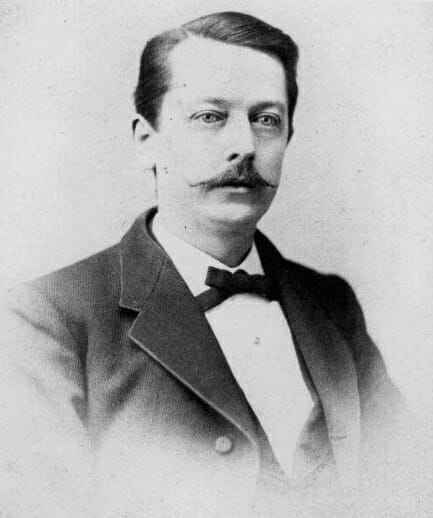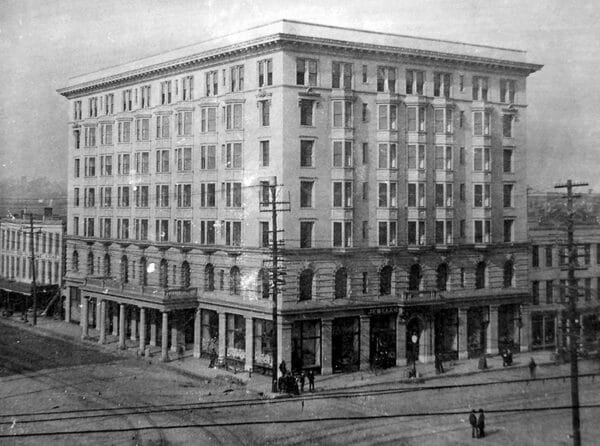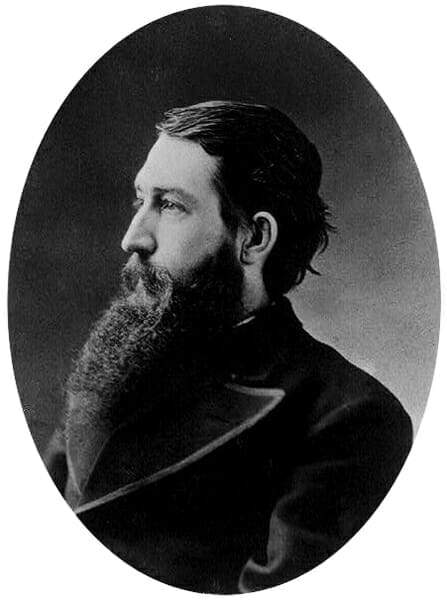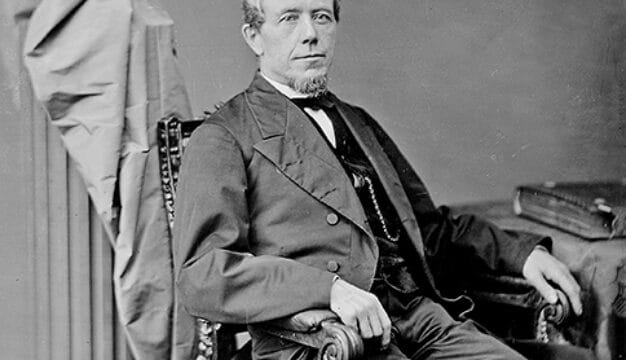Clifford Lanier
 Clifford Lanier
Close companion and devoted benefactor of his older and better known brother, poet and musician Sidney Lanier, Clifford Lanier (1844-1908) was an essayist, novelist, and poet in his own right. Although he was born and raised in Georgia, practically all of the younger Lanier’s adult life was spent in Montgomery, Montgomery County, where he became a successful businessman and civic leader. He maintained a lifelong interest in writing and literature, however, and published books and a number of poems and essays in national magazines.
Clifford Lanier
Close companion and devoted benefactor of his older and better known brother, poet and musician Sidney Lanier, Clifford Lanier (1844-1908) was an essayist, novelist, and poet in his own right. Although he was born and raised in Georgia, practically all of the younger Lanier’s adult life was spent in Montgomery, Montgomery County, where he became a successful businessman and civic leader. He maintained a lifelong interest in writing and literature, however, and published books and a number of poems and essays in national magazines.
Born April 24, 1844, in Griffin, Georgia, Clifford Anderson Lanier was the middle of three children born to Robert Sampson and Mary Jane Anderson Lanier. His father was a lawyer, and his paternal grandfather, Sterling Lanier, owned hotels in three southern states. He was raised in Macon, Georgia, and at age 14 moved to Montgomery to work as a clerk in Sterling Lanier’s Exchange Hotel. After about a year, he joined his brother Sidney as a student at Oglethorpe College, near Milledgeville, Georgia. In 1862, after having left college for health reasons and working for another short stint in Montgomery, he reunited with his brother—this time in the Macon Volunteers of the Confederate Army. The Lanier brothers served in the infantry and then in the mounted signal corps and participated in various military campaigns in North Carolina and Virginia. In 1864, they both were transferred to duty on ships running the federal blockade along the Atlantic coast. Clifford served on the blockade runner Talisman, which wrecked on one of its runs to Nassau in the Bahamas. Eluding capture, Lanier travelled from Bermuda to Nassau to Cuba to Galveston, Texas, and made his difficult way, much of it by foot, back to Macon, where he arrived on May 19, 1865, three days before his mother’s death.
 Exchange Hotel, 1909
After the war, Lanier returned to Montgomery to work at the Exchange Hotel, which he would eventually own and actively run until 1884. On November 26, 1867, he married Wilhelmina Clopton, with whom he would have two children. Also during this time, he began writing and publishing. His autobiographical novel, Thorn-Fruit, was based largely on his Civil War experiences. Similar in theme to his brother’s novel Tiger-Lilies (published, unlike Clifford’s, at the author’s own expense), it was considered by contemporary and later critics to be the better of the two. Clifford’s second novel, Carpet-Baggery, was completed in 1871 but would not be published until 1939.
Exchange Hotel, 1909
After the war, Lanier returned to Montgomery to work at the Exchange Hotel, which he would eventually own and actively run until 1884. On November 26, 1867, he married Wilhelmina Clopton, with whom he would have two children. Also during this time, he began writing and publishing. His autobiographical novel, Thorn-Fruit, was based largely on his Civil War experiences. Similar in theme to his brother’s novel Tiger-Lilies (published, unlike Clifford’s, at the author’s own expense), it was considered by contemporary and later critics to be the better of the two. Clifford’s second novel, Carpet-Baggery, was completed in 1871 but would not be published until 1939.
 Sidney Lanier
Lanier also composed and published a number of sonnets and other poems about his brother, who died of tuberculosis in 1881 at age 39, and about other subjects, including Alabama politician and ardent states’ rights advocate William Lowndes Yancey. Better known at the time and, in some ways, more interesting today, however, are Lanier’s so-called “dialect poems,” several of which were written in collaboration with Sidney. The most familiar is “The Power of Prayer; or The First Steamboat up the Alabama,” which appeared in Scribner’s Monthly in 1875. The poem is written in vernacular dialect from the perspective of an African American man who becomes frightened upon hearing an approaching steamboat for the first time. Although present-day readers will take issue with the racist condescension and perpetuation of the degrading African American “Sambo” or “Rastus” stereotype, in its time the poem was a popular dramatic public-performance piece for professional “readers” both inside and outside the South.
Sidney Lanier
Lanier also composed and published a number of sonnets and other poems about his brother, who died of tuberculosis in 1881 at age 39, and about other subjects, including Alabama politician and ardent states’ rights advocate William Lowndes Yancey. Better known at the time and, in some ways, more interesting today, however, are Lanier’s so-called “dialect poems,” several of which were written in collaboration with Sidney. The most familiar is “The Power of Prayer; or The First Steamboat up the Alabama,” which appeared in Scribner’s Monthly in 1875. The poem is written in vernacular dialect from the perspective of an African American man who becomes frightened upon hearing an approaching steamboat for the first time. Although present-day readers will take issue with the racist condescension and perpetuation of the degrading African American “Sambo” or “Rastus” stereotype, in its time the poem was a popular dramatic public-performance piece for professional “readers” both inside and outside the South.
Lanier also wrote a number of essays on religion during his lifetime, many of them appearing in the Christian Advocate published in Nashville.
Lanier was admitted to the bar in 1870, but he generally earned a living from business and real estate interests and later served as superintendent of schools in his adopted city.
He died in Montgomery on November 3, 1908, and was buried in Oakwood Cemetery.
Works by Clifford Lanier
Thorn-Fruit: A Novel (1867)
Apollo and Keats on Browning, A Fantasy, and Other Poems (1902)
Sonnets to Sidney Lanier, and Other Lyrics (1915)
Carpet-Baggery (1939)
Additional Resources
Jones, David. “Clifford Anderson Lanier.” Georgia Review 14.2 (Summer 1960): 205-14.
Starke, Aubrey Harrison. Sidney Lanier: A Biographical and Critical Study. Chapel Hill: University of North Carolina Press, 1933.



